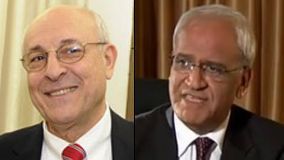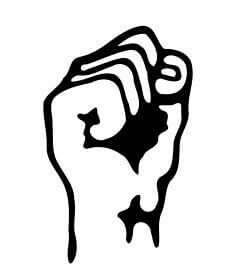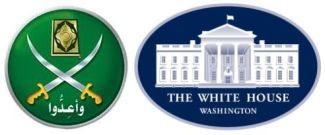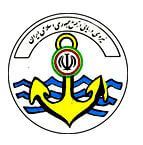 Everything you need to know about today’s media coverage of Israel and the Mideast.
Everything you need to know about today’s media coverage of Israel and the Mideast.
Face to face peace efforts resumed, Syrian rebels say they kidnapped five Iranians, and the White House juggles how to engage the Muslim Brotherhood.
Israel and the Palestinians
• Israeli and Palestinian representatives Yitzhak Molcho and Saeb Erekat met in Amman yesterday for the first direct contact in more than a year. Nothing exciting, but everyone agreed to a second date without any commitments. Haaretz sums it all up in just 27 words:
The low expectations which led up to the Erekat-Molcho meeting apparently caused all involved, including Jordanian and Quartet representatives, to consider it as “good and constructive.”
And why the low expectations? The BBC nails that in 35 words:
Our correspondent says neither side wants to be held responsible for a breakdown in the talks, but in times of mounting uncertainty around the Middle East neither feels the time is right for serious negotiations.

• My antennae are twitching over a cautiously optimistic Washington Post staff-ed — if only because the the Post thought the parley merited a staff-ed response in the first place. Meanwhile, Ethan Bronner’s analysis in the NY Times saw the talks in the context of “the rise of political Islam.”
• The Israeli Supreme Court ruled that Israeli businesses can profit from West Bank resources. The Guardian reports:
But the court ruled last week that in a prolonged occupation the economic development of the occupied territory could not be frozen indefinitely. It added that the quarrying firms were not destroying the “capital” of the West Bank’s natural resources, and were providing employment to Palestinians.
Existing Israeli-owned quarries should be allowed to continue operating, but no new ones should open, the court ruled, reflecting the Israeli government’s position.
Arab Spring Winter
 • A Syrian rebel group calling itself Movement against the Shiite tide in Syria kidnapped five Iranians. More at the Daily Star:
• A Syrian rebel group calling itself Movement against the Shiite tide in Syria kidnapped five Iranians. More at the Daily Star:
“We took upon ourselves the task of detecting and hitting all forms of support provided by both Iran and Hezbollah to the criminal [Syrian] regime,” the statement said.
• On Hezbollah’s Al-Manar TV, Syrians who support Assad claim to be the victims. Thumbs up to The Lede‘s background info about the station.
• Fed up Syrian activists denounced Arab League observers.
“We want to tell Nabil al-Arabi that the lack of professionalism of the observers and non-compliance with their arrival times in specific places have left many people killed,” said the Local Coordination Committees, which organise the protests.
See also the LA Times: Arab League, dissidents disagree on progress in Syria
• Seeing the writing on the wall, the White House is shaping a new policy on engaging the Muslim Brotherhood. The NY Times writes:
Some close to the administration have even called this emerging American relationship with the Brotherhood a first step toward a pattern that could take shape with the Islamist parties’ coming to power around the region in the aftermath of the uprisings of the Arab Spring. Islamists have taken important roles in Morocco, Libya, Tunisia and Egypt in less than a year.
But Israel’s National Security Council urges more a cautious approach to the Brotherhood next door. According to Israel HaYom:
The council believes that the Muslim Brotherhood is not just a religious and cultural force, but also a reincarnation of the totalitarian fascist movements seen in Europe over the past century. Religion, the council feels, is just a cover for the true fascist ideology. Nevertheless, council members believe that if the U.S. and key European countries take the proper steps, they can still exert influence over Muslim Brotherhood governments and their related offshoots. Such influence would mostly be effected through economic leverage, because effective governing requires leaders to be responsive to private and governmental investors from the U.S. and Europe.

• Worth reading: Sarah Topol discovers why most Egyptians have embraced the Islamist parties: the Egyptian street’s views line up with the Muslim Brotherhood’s primary message:
The only thing we know is that the Brotherhood’s conservative values aren’t much out of sync with mainstream thinking in Egypt. Not all Egyptians like the group or want to see it in charge, but few argue with its main tenet: “Islam is the solution.”
Iranian Atomic Urgency
• An Arab News commentary (via Israel Matzav) says Tehran don’t have the capability to block the Straits of Hormuz. So what’s the Iranian Navy’s best shot?
In military sense, Iran could dump empty barrels in the middle of the navigation channel and declare to the world, it is mining the strait. Mariners take these threats at face value and treat the empty barrels as active mines. But, it is unlikely for Iran to declare anything in this nature. And if Iran announces an official declaration to close the Strait of Hormuz, then, Iran is committing a political and military suicide.
Commentaries in the LA Times and The Australian slam Tehran’s latest threats.

• Ron Lauder (NY Post) likes the deterrent value of Israeli subs.
Rest O’ the Roundup
• Palestinians worried about a PA’s corruption probe are transferring their money from Jordan to Western banks. More on the investigation at the Jerusalem Post.
• Labor Party leader Shelly Yachimovich posted on Huffington Post her remarks in Beit Shemesh. Regardless of the substance, does airing this internal Israeli debate in a forum like the HuffPost excaberate the hasbara headache? CNN‘s Kevin Flower got the right nuance. And Dan Ephron of The Daily Beast is shocked at the use of Holocaust imagery at a haredi protest.
(Image of fist via Open Clip Art/liftarn)

